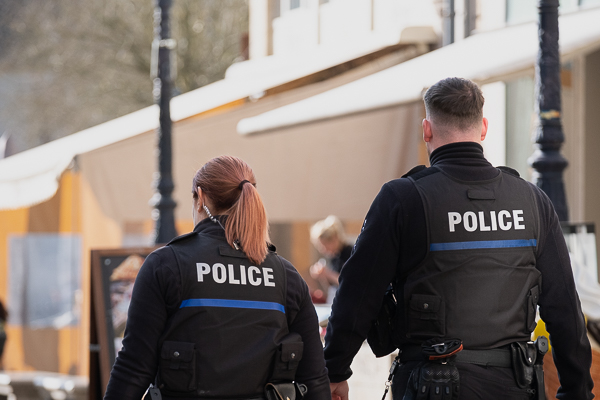 Credit: Ali Sahib, Chronicle.lu
Credit: Ali Sahib, Chronicle.lu
On Thursday 8 May 2025, the Luxembourg government presented its updated drug deterrance action plan, "Drogendësch 2.0", a follow-up to the 2021 anti-drug crime package.
The plan was developed on the initiative of Luxembourg's Minister for Home Affairs, Léon Gloden, in collaboration with the Ministries of Justice, Health and Social Security, and Family Affairs, Solidarity, Living Together and Reception of Refugees, as well as with the City of Luxembourg (VdL) and in consultation with the Grand Ducal Police and the judicial authorities.
"We want to give the citizens their neighbourhood back," said Minister Gloden.
"Combating drug-related crime is one of the government's main concerns. At the same time, we want to provide greater support to people in great distress," explained the minister, welcoming the increase in drug trafficking arrests in 2024 and the major drug seizures made since the beginning of the year.
"Police presence on the ground remains reinforced. Between January and April 2025, 2,800 patrols were carried out in Luxembourg City, including those by the local police. 35% of these patrols took place in the Gare/Hollerich and Bonnevoie districts, representing an average of nine patrols per day," he continued.
The authorities argued that effectively fighting drug trafficking requires a "coordinated and multidisciplinary approach between various partners, each acting within their respective areas of expertise".
All stakeholders involved are responsible for implementing the measures and actions within their respective areas of responsibility, at the governmental and local levels, as follows.
Ministry of Home Affairs: increased police presence and patrols; 24/7 services at the Luxembourg-Gare/ Hollerich and Ettelbruck police stations, plus new police stations for the Gare/Hollerich and Bonnevoie districts; community policing; reinforced "Platzverweis" (removal orders); extension of the "Visupol" project; establishment of a working group dedicated to urbanisation and security for municipalities; establishment of a coordination group.
Ministry of Justice: accelerated and modernised criminal justice processes plus penal code reforms; hiring additional judges.
Ministry of Health and Social Security: strengthened psycho-medical-social services with extended hours (including nights and weekends) and new facilities (Abrigado).
Ministry of Family Affairs, Solidarity, Living Together and Reception of Refugees: strengthening shelter/reception capacities; establishment of social laundry services; creation of an occupational workshop to aid social reintegration.
City of Luxembourg: investments in the construction of social housing/facility projects; extended opening hours for two day shelters and the "Para-Chute" support centre; covering the costs of educational support staff in reception facilities; strengthening school security in Luxembourg-Gare.
The authorities said these measures, whether implemented in the short, medium, or long term, all aim to mobilise preventive, social, health and repressive levers to effectively combat drug-related crime as well as poverty and social exclusion. This "comprehensive" approach reportedly addresses major issues of public order, public health and social cohesion.








